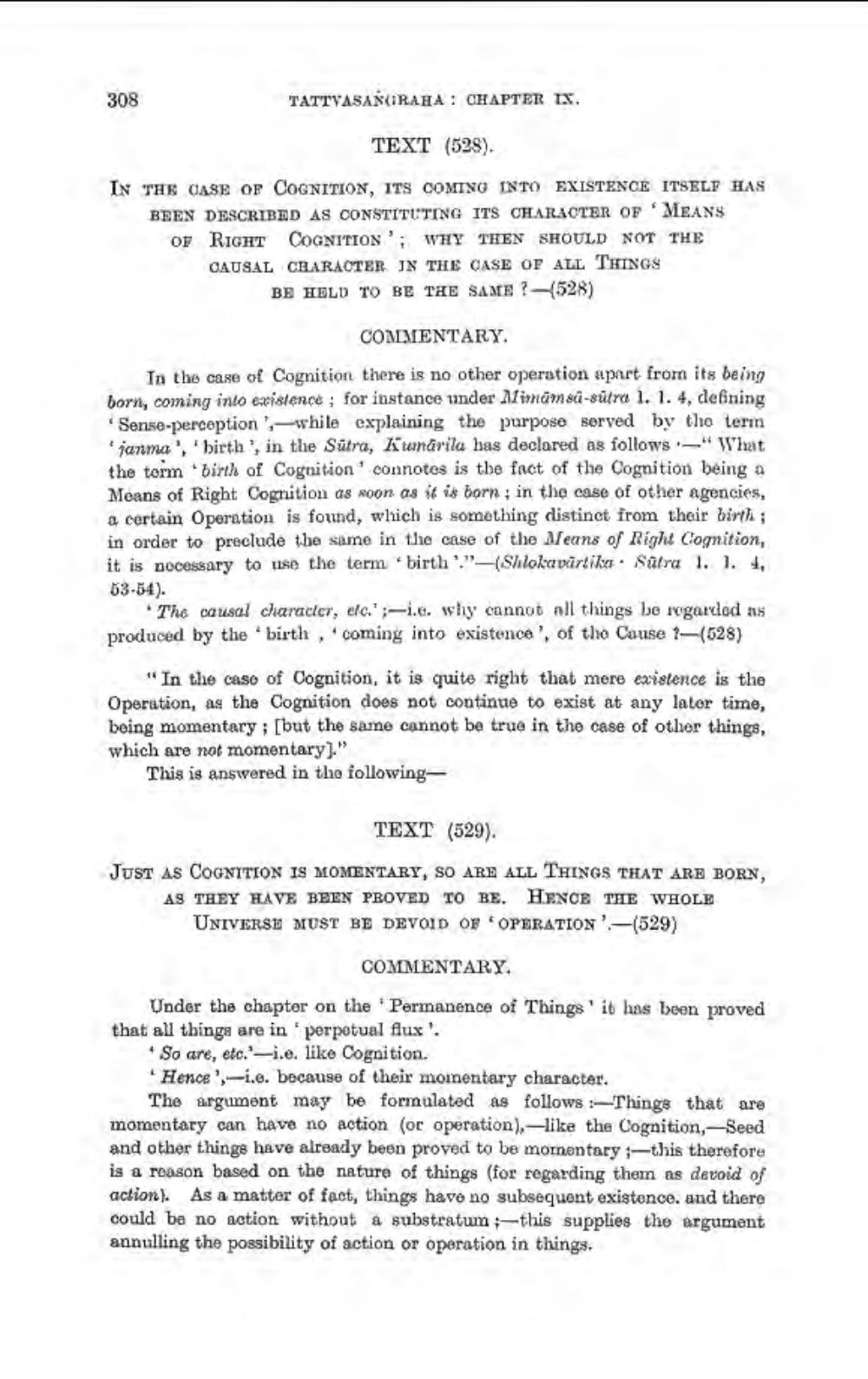________________
308
TATTYASANGRAHA : CHAPTER IX.
TEXT (528)
IN THE CASE OF COGNITION, ITS COMING INTO EXISTENCE ITSELF HAS
BEEN DESCRIBED AS CONSTITUTING ITS CHARACTER OF MEANS OF RIGHT COGNITION', WHY THEN SHOULD NOT THE CAUSAL CHARACTER IN THE CASE OF ALL THINGS
BE HELD TO BE THE SAME ? -(528)
COMMENTARY
In the case of Cognition there is no other operation apart from its being born, coming into existence ; for instance under Mināmeü-sūtra 1. 1. 4, defining Sense-perception', while explaining the purpose served by the term janma birth, in the Sütra, Kuarila has declared as follows." What the torm birth of Cognition' connotes is the fact of the Cognition being a Means of Right Cognition as soon as it is born : in the case of other agencies, 2 certain Operation is found, which is something distinct from their birth; in order to preclude the same in the case of the Means of Right Cognition, it is nocessary to use the term birth'."-Shlokavirtika. Sutra 1. 1.4, 53-54).
* The causal characer, elc.':-.e. why cannot all things be regarded as produced by the birth , coming into existence', of the Cause 1-(528)
"In the case of Cognition, it is quite right that mere existence is the Operation, as the Cognition does not continue to exist at any later time, being momentary ; [but the same cannot be true in the case of other things, which are not momentary)."
This is answered in the following
TEXT (529).
JUST AS COGNITION IS MOMENTARY, SO ARH ALL THINGS THAT ARE BORN,
AS THEY HAVE BEEN PROVED TO BE. HENCE THE WHOLE
UNIVERSU MUST BE DEVOID OF OPERATION' -(529)
COMMENTARY.
Under the chapter on the Permanence of Things' it has been proved that all things are in perpetual flux
* So are, etc. -i.e. like Cognition.
Hence',-i.e. because of their moinentary character.
The argument may be formulated as follows:Things that are momentary can have no action (or operation), - like the Cognition,- Seed and other things have already been proved to be momentary this therefore is a reason based on the nature of things (for regarding them as devoid of action). As a matter of fact, things have no subsequent existence, and there could be no action without a substratum this supplies the argument annulling the possibility of action or operation in things.




